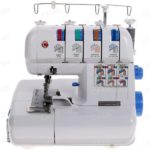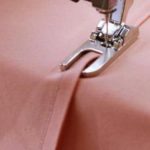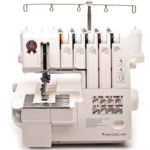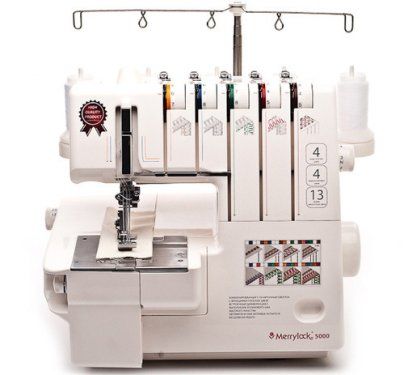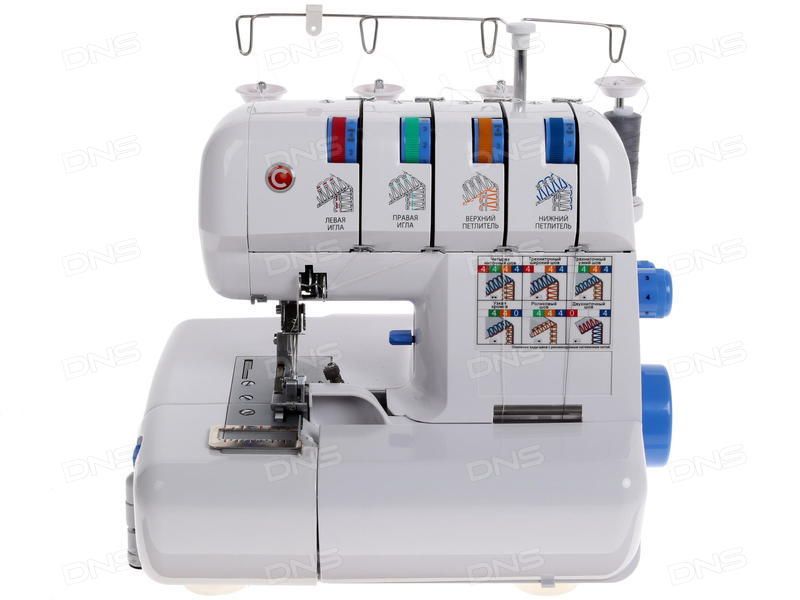What is the best thread to choose for overlocking?
 An overlocker is an excellent addition to a sewing machine. Various edge treatments are performed on it. Many types of fabric fray. To avoid this, the edges are also processed to give the product a more aesthetic appearance. Overlock requires special threads for it. Why is it necessary to choose them? The quality of the sewing products depends on this. If selected incorrectly, malfunctions of the overlocker itself may occur.
An overlocker is an excellent addition to a sewing machine. Various edge treatments are performed on it. Many types of fabric fray. To avoid this, the edges are also processed to give the product a more aesthetic appearance. Overlock requires special threads for it. Why is it necessary to choose them? The quality of the sewing products depends on this. If selected incorrectly, malfunctions of the overlocker itself may occur.
The content of the article
What consumables should be there?
Overlockers require good quality threads. They must have certain properties. In order for the product to be of high quality, there are no “surprises” after washing, ironing, or drying the product. Here's what you need to focus on:
- Elasticity. A very important requirement for consumables. They must create the necessary tension. If the thread does not have the required elasticity, it will break or not produce the desired results.
- Smoothness. No roughness or unevenness.
- No thickening or thinning. An even structure is important.
- Optimal thickness. The thread number range varies from 50 to 120. Threads that are too thick will spoil the appearance of the product and create additional troubles. Thin ones can tear.
- Coil length. You can choose reels with a length of 1000 meters. This is the most rational option.
- Strength.If they tear all the time, this will lead to a deterioration in the quality of the product.
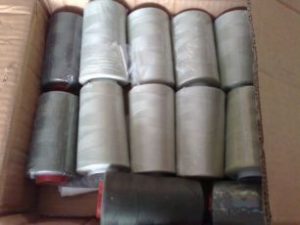
For overlocker type 51, any type can be suitable. Such a device was widespread in Soviet times. But they are still in demand due to their low cost and practicality. There are special polypropylene threads for processing the edges of carpets.
Important! Among materials, preference is given to synthetics. It glides well on fabric. There are many manufacturers of overlock threads. One of the most expensive is the German company Aman Mettler. Such consumables are suitable for any type of work.
To correctly select consumables, you need to determine their criteria. These criteria are:
- The type of clothing that needs to be processed.
- Color.
- Manufacturer.
- Price.
For quality products, it is better not to skimp on threads. After all, reworking the product will cost much more.
Types of threads for overlockers
Overlockers can use different types of threads. The types of threads are as follows:
- Universal. They are suitable for most fabrics and seams. These threads hold temperature well. Universal threads have a good margin of strength and resistance to fading.
- Translucent. They have good softness. Use it to make invisible seams. The color of the fabric can be seen through it. Despite their softness, such threads also have sufficient reserve strength.
- Textured. They have good elasticity. They are used for sewing clothes from elastic types of fabrics. These include swimming trunks, swimsuits, sports shorts, T-shirts, and pants. They are made from polyamide.
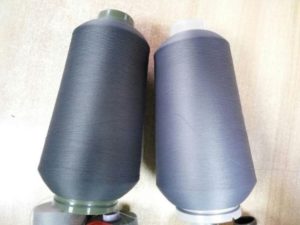
How to choose
To process everyday clothes, dresses, trousers, you need to use a universal type.They are designed for all major fabric types. They will not create unnecessary tension. At the same time, their tension will be quite enough for such fabrics. Bags, socks, T-shirts, shirts can be treated with such threads. Their sphere of influence will also include towels, tablecloths, and napkins. They can be used to stitch the edges of bed linen.
Translucent types are suitable for silk items. They dissolve well in the color of the fabric itself. The seams will become barely noticeable. The same threads are suitable for processing various types of underwear, dresses, and sophisticated items. All types of clothing that need a soft, fine finish.
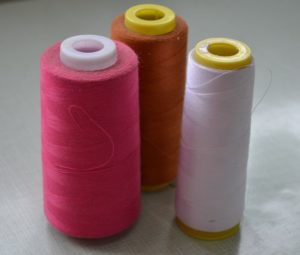 Elastic types of fabric are processed with textured threads. These are various types of sportswear made from stretch fabrics. Swimming trunks that stretch well, swimsuits. Sports shorts made of stretch synthetic material. Such fabric is often necessary for use in training, in gyms, and at competitions. Active movements mean more dynamic clothing materials. After all, if the fabric does not stretch, it may tear under tension from such movements. Athletes sweat frequently and clothing can stick to their body. Here, even loose clothing is not immune to tearing. And clothes made of stretchy fabrics will not tear even if they stick to the body. It will only stretch. Textured overlock threads are ideal for processing such clothes.
Elastic types of fabric are processed with textured threads. These are various types of sportswear made from stretch fabrics. Swimming trunks that stretch well, swimsuits. Sports shorts made of stretch synthetic material. Such fabric is often necessary for use in training, in gyms, and at competitions. Active movements mean more dynamic clothing materials. After all, if the fabric does not stretch, it may tear under tension from such movements. Athletes sweat frequently and clothing can stick to their body. Here, even loose clothing is not immune to tearing. And clothes made of stretchy fabrics will not tear even if they stick to the body. It will only stretch. Textured overlock threads are ideal for processing such clothes.
Which threads are best not to use?
Since overlocking requires elastic and at the same time strong threads, it is better to use exactly the types that were listed above. Threads that should not be used when working with overlock:
- Cotton. They do not have the required elasticity. They may have irregularities and thickenings.
- Reinforced threads.They are very strong, but do not have the necessary tension. This can lead to malfunctions in overlockers.
- Lavsan. The reason is the same as in the previous case.
- Uneven threads with thickenings. Using such threads, it is unlikely that you can make a high-quality seam. Overlock threads need to be smooth, without roughness.
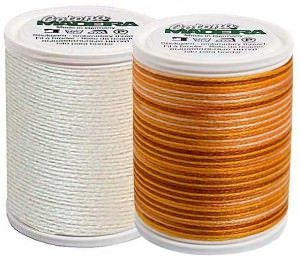
Many hobbyists will start their work with overlock using universal threads. The choice of manufacturer will also depend on the financial capabilities of the seamstress. By choosing high-quality consumables, you can create beautiful products. With such consumables, the overlocker will last longer.

